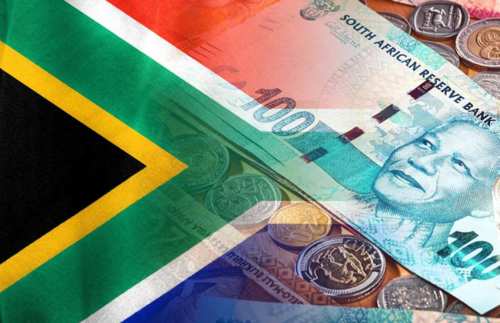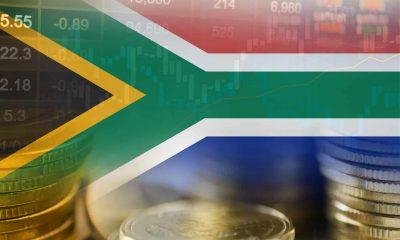Business
Rand Slides Amid Political Uncertainty and Global Trade Concerns

The South African rand plunged 1.5% against the dollar on Monday, marking its sharpest drop in two weeks. Political tensions within South Africa’s coalition government, combined with escalating global trade uncertainties, have left investors wary and prompted significant outflows from local asset markets.
Political Rift Sparks Market Jitters
Tensions flared last week as the Democratic Alliance (DA), a key partner in South Africa’s coalition government, raised a dispute over the African National Congress’ (ANC) handling of the recently signed expropriation bill. The new legislation, which facilitates land expropriation, reportedly blindsided coalition partners, creating uncertainty and eroding investor confidence.
“The market dislikes uncertainty, and the signing of the expropriation bill seems to have caught some partners by surprise,” said Warrick Butler, head of foreign exchange trading at Standard Bank Group.
Rand Faces Global and Domestic Pressure
The rand fell to 18.6678 per dollar by midday in Johannesburg, making it the worst-performing currency among 23 major emerging markets tracked by Bloomberg. Since the beginning of the year, foreign investors have sold a net R20.7 billion ($1.1 billion) worth of South African stocks.
Adding to the pressure, US President Donald Trump’s renewed tariff threats stirred fears about the impact on South Africa’s trade relationships. The US is the country’s second-largest trading partner, and the rand often serves as a proxy for global risk appetite.
Coalition Woes Add to Investor Unease
For the first time since 1994, the ANC’s support dropped below 50% in May’s national elections, forcing the party into a coalition with the DA. Initially, this coalition reassured investors, sparking a rally in the rand to a 13-month high.
However, cracks in the coalition have emerged, with the DA accusing the ANC of breaching the terms of their agreement. This political discord has dampened optimism about South Africa’s structural reform prospects, leaving investors questioning the country’s stability.
Global Trade Uncertainty Amplifies Risks
Compounding domestic concerns, Trump’s threats to impose tariffs on Colombia over a migration agreement raised fears he may employ similar tactics against other nations. These developments have amplified market jitters, leading to increased speculative short positions against the rand.
“Anything that threatens the promising structural narrative in South Africa is not good news,” said Henrik Gullberg, a macro strategist at Coex Partners.
Navigating Turbulent Waters
As South Africa grapples with internal political discord and global trade volatility, the rand remains vulnerable to further declines. For investors, these challenges underscore the importance of monitoring both domestic policy shifts and international trade developments.
The coming weeks will be crucial as coalition dynamics and global trade negotiations unfold, shaping the trajectory of South Africa’s currency and economy.
Follow Joburg ETC on Facebook, Twitter , TikTok and Instagram
For more News in Johannesburg, visit joburgetc.com

















